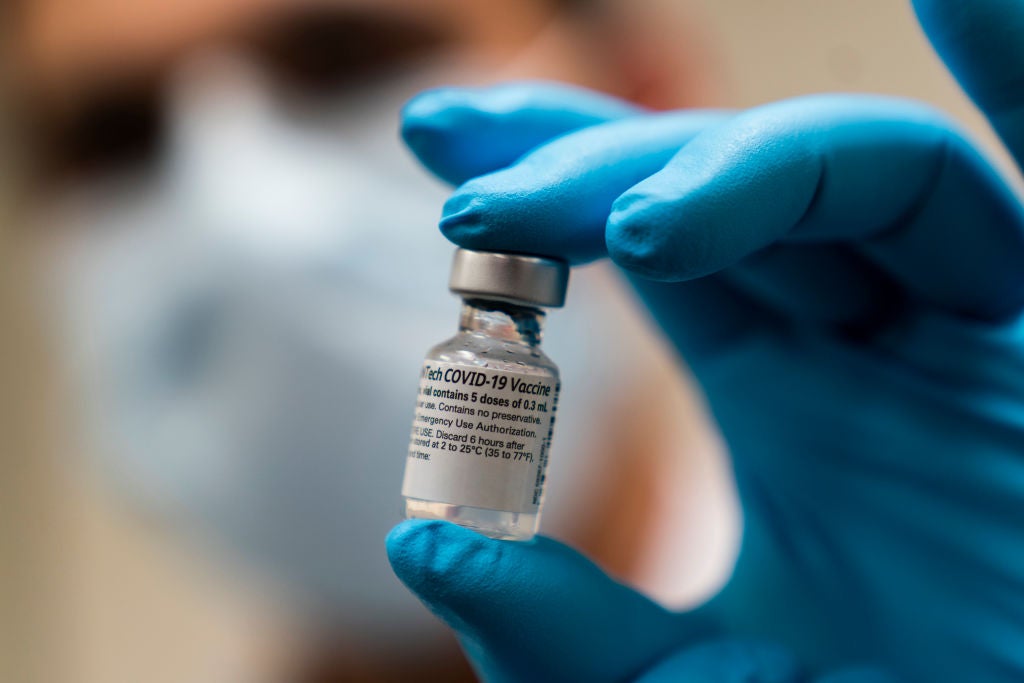Behind the scenes, the UK is stopping other countries from getting a vaccine — and making Brexit enemies
As a UN employee, I know how much we are embarrassing ourselves on the world stage

For Africa's roughly 1.2 billion people, the cost of a coronavirus vaccine ranges from $4 billion (AstraZeneca) to $44 billion (Moderna) — not including the cost of developing the infrastructure needed to deliver it. The same applies for India's 1.3 billion people and the other billion in developing countries globally.
Without a global vaccination, Covid-19 will remain at large in populations around the world, offering it the opportunity to mutate and surface again. Even while knowing this, the UK and other developed countries are currently working to prevent their developing counterparts from being able to produce the vaccine in an affordable way. Archaic committees and processes within the World Trade Organization are now wrapping up what should be a simple decision for the public good in bureaucracy, putting an impossible price on a return to normalcy.
Governor Mario Cuomo, father of New York’s current governor and a former New York governor himself, once remarked that politicians campaign in poetry but govern in prose. The gap between the two has been deftly highlighted by the UK’s Permanent Representative to the United Nations Karen Pierce.
However, the machinery of government doesn’t not consider Twitter as a matter of record (thankfully). And what the UK is doing behind the scenes is very different to what Pierce says publicly on social media.
Recently, the UK refused the request of South Africa — supported by Eswatini, Kenya, India and many others — to allow for a waiver of the intellectual property behind the COVID-19 vaccine. Effectively, they were asking to be able to make the vaccine in their own countries as a generic medication, rather than having to adhere to the intellectual property rights of the pharmaceutical companies that produced them. A waiver would make production and dissemination of a vaccine in the area much easier, faster and cheaper, to the benefit of the entire global population.
This is the second such attempt for a waiver from South Africa and India. Their first came in early October. At the time, the Lancet described developed countries’ refusal to grant the waiver as a “step backwards in the fight against global vaccine inequalities”.
Effectively, developing countries are requesting that the WTO’s intellectual property requirements, as mandated by TRIPS (Trade-Related Aspects of Intellectual Property Rights) are waived so they can localise vaccine production and not wait for other countries. And under WTO rules, the TRIPS Council has 90 days to consider South Africa’s proposal, submitting a recommendation to WTO’s General Council. This 90-day period runs out on 31st December, with this being the last opportunity for the WTO to take a formal decision. If there is a logjam, countries can resubmit a proposal — but then it’s back to square one.
Through refusing to waive a requirement which many consider a public good, developing countries are faced with an impossible choice: violate standing international law and produce the vaccine; or stand idly by while those still on their front lines continue to suffer. This isn’t a choice any country should have to make. But now, many will have to.
The TRIPS council will be critical for the UK government to protect its intellectual property post-Brexit. It will need the support of other countries to do this; however, the UK's constant diplomatic missteps are preventing success. Diplomats within the UN and the WTO are already shocked by duplicitous, Trumpian approach British politicians have been taking to the EU negotiations, with a confusing emphasis on “winning” that appears to have no objective meaning. As such, the UK is rapidly losing its international cachet as a country to do business with.
India and South Africa will be key future trading partners after Brexit. One can only imagine how much damage is being done to that relationship by the UK refusing to help out with basic vaccine production rules. This may be one of its most foolish diplomatic steps yet.
British diplomats like Karen Pierce are struggling with the obstinance and embarrassing lack of direction from the Foreign Office, leaving them to talk about British values in public then see their words ring hollow in practice. Countries that the UK is denying now will have long memories — and these memories will last longer than the current pandemic.
Emin Pasha is the pseudonym of a British diplomat working at the United Nations in New York
Join our commenting forum
Join thought-provoking conversations, follow other Independent readers and see their replies
Comments
Bookmark popover
Removed from bookmarks